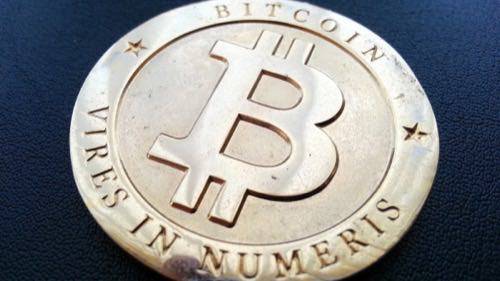
When everybody has access to the same Internet, obscurity no longer exists. Not even when it comes to a certain hard-to-understand cryptocurrency.
First Congress began looking into Bitcoin regulation. Then a federal judge ruled Bitcoin was actual money, deserving of regulation under U.S. law. Now in the most overt example of government interest in the currency, the New York Department of Financial Services has subpoenaed 22 companies that have Bitcoin involvement with an eye towards such regulation.
“If virtual currencies remain a virtual Wild West for narcotraffickers and other criminals, that would not only threaten our country’s national security, but also the very existence of the virtual currency industry as a legitimate business enterprise,” NYDFS superintendent Benjamin Lawsky said in a memo.
Bitcoin has earned a reputation of being impossible to trace, giving it appeal to those who would use it to fund illegal activity. (Though it’s important to note that a member of Bitcoin’s core development team has vehemently denied this.) It’s no wonder that the NYDFS suspects it of being a “Wild West for… criminals.” Whatever the real breakdown of Bitcoin use actually is, its reputation has already convinced Thailand to deem it illegal.
In the same memo, Lawsky said that DFS regulation would be beneficial for Bitcoin customers, too, by “putting in place appropriate regulatory safeguards for virtual currencies will be beneficial to the long-term strength of the virtual currency industry.” It remains to be seen whether Bitcoin users will agree with him.
The 22 companies subpoenaed read like a who’s who of Bitcoin players. They include major investors like the Winklevoss twins, Bitcoin mining equipment maker Butterfly Labs and even Google Ventures. Jaron Lukasiewicz, an executive at the subpoenaed company Coinsetter, sees this investigation as an opportunity.
“[The regulators will] quickly find that most companies are working to legitimize Bitcoin and want to build bridges that help regulators understand and support these financial innovations,” Lukasiewicz told the Wall Street Journal.
As Bitcoin’s popularity steadily increases, more and more government bodies will seek to regulate it. New York’s efforts come in the wake of at least one cease-and-desist from the state of California. Even if Bitcoin’s proponents insist that illegal activity is uncommon through the currency, it’s impossible for regulating bodies to tell for sure without, well, regulating it.
On the upside, regulation could lead to a wider understanding of Bitcoin, by world governments and citizens alike. As a result, this could result in an even bigger surge in popularity for Bitcoin.
Photo by zcopley on Flickr.

















